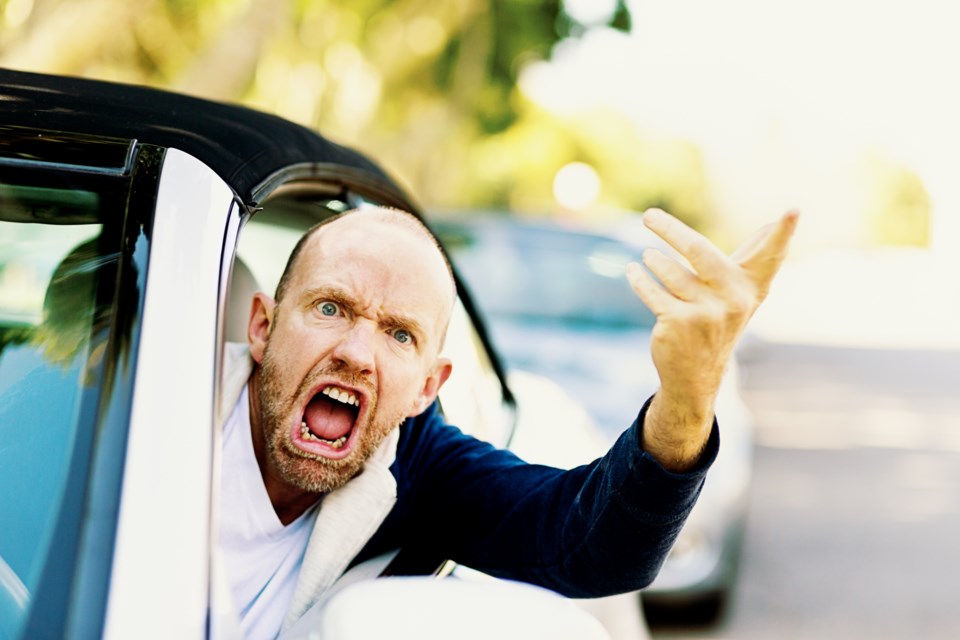My jaded faith in humanity was somewhat restored this past summer when we avoided a catastrophic fire in Whistler and the Sea to Sky corridor. As busy as it was, nobody left a campfire unattended, tossed a cigarette butt out a car window into dry grass, or launched blue/pink fireworks into a tinder-dry forest at a cursed gender reveal party (at least not that I know about).
I’m sure some luck was involved, and I know fire crews attended minor issues all summer long, including a lightning strike, but at the end of the day we made it through a dangerous situation. It was incredibly stressful to go through the days knowing everything you own, and maybe even your life, ultimately depended on other people being safe and making good choices.
It’s amazing how much of a difference one even temporarily careless or clueless human can make.
I would argue this applies equally to our roads, although I can’t say driving the highway has done a lot for the overall faith/humanity equation. On any given day I see pointless speeding, people driving too fast for the conditions, unnecessarily aggressive passing and lane changes, drivers following way too closely (especially at night when the overbright lights of pickup trucks bounce off my mirrors and blind me, making me slow down), drivers not signalling their intentions and forcing others to react suddenly or wait for the next stoplight, drivers veering over the centre line and cutting corners, drivers pulling out onto the highway when they don’t have enough time and forcing others to slam on their brakes, and so on.
It’s gotten to the point where it’s rare I can make a trip to Squamish or the city and not experience at least one close call. As we head into another winter driving season and conditions ramp up the risk factor, I fully expect to see the same kinds of highway closures that seemed to occur at least once a week over the last few winters.
Driving is serious business. There aren’t too many other things we do on a daily basis where a small mistake or miscalculation can kill or injure someone.
Nationally, there are roughly 160,000 car accidents every year, resulting in more than 10,000 serious injuries and almost 3,000 deaths. In B.C., there are an average of 820 crashes every single day, about 170 of which result in an injury or death. There are about 180 road deaths a year in the province, or about one every second day.
Theoretically, almost every single one of those accidents, minor injuries, life-changing injuries and deaths is preventable, and all it would take would be for people to take driving seriously and obey the rules of the road—including speed limits most people treat as optional.
If you applied those grim statistics to any other activity, there would be outrage. If even a 10th of our daily vehicle injuries and deaths occurred as a result of elevator accidents, everybody would take the stairs and demand government act to make elevators safer. Same goes with foodborne illnesses or air travel or literally anything else we regulate as a society. But because all this carnage takes place on the road, it gets a pass for some reason—we have collectively decided as a society that a certain amount of carnage is acceptable and unavoidable; a fair price to pay for the convenience of our cars.
We don’t even think about driving properly. For example, consider the people you know who would consider themselves to be “good” drivers—what exactly do they mean by that?
Objectively, there’s really no such thing as a “good” driver, there are only safe drivers who obey the rules and reckless drivers who don’t. A lot of the people who consider themselves to be good drivers are really just reckless drivers that have gotten away with it and have confused their luck with skill. Pushing the limit on corners, ignoring conditions, passing people who are already driving over the limit, following way too closely, and changing lanes every few seconds because there’s a gap you can fill doesn’t make you a good driver, it makes you the driver who is statistically most likely to ruin someone’s day. Or life.
Increased enforcement would help, but there are almost 60,000 kilometres of paved roads in this province and police can’t be everywhere. Cameras will help—speed cameras and red-light cameras—but you’d need thousands placed randomly for full effect.
When you do the math, driving recklessly isn’t worth it. Going 10km/h over the limit from Whistler to Vancouver will save you about nine minutes—and that’s only if you hit all green lights through Squamish and don’t end up in any traffic. I can’t count the number of times somebody has made a dangerous pass at the end of a merge only to be sitting all of 10 metres and five seconds ahead of me at the next set of lights.
I think about this a lot with my daughter turning 16 in a few months. Like other teens, she’s excited to get her permit and start taking lessons. Seeing what I see out there on a daily basis, I’m less excited than terrified.




